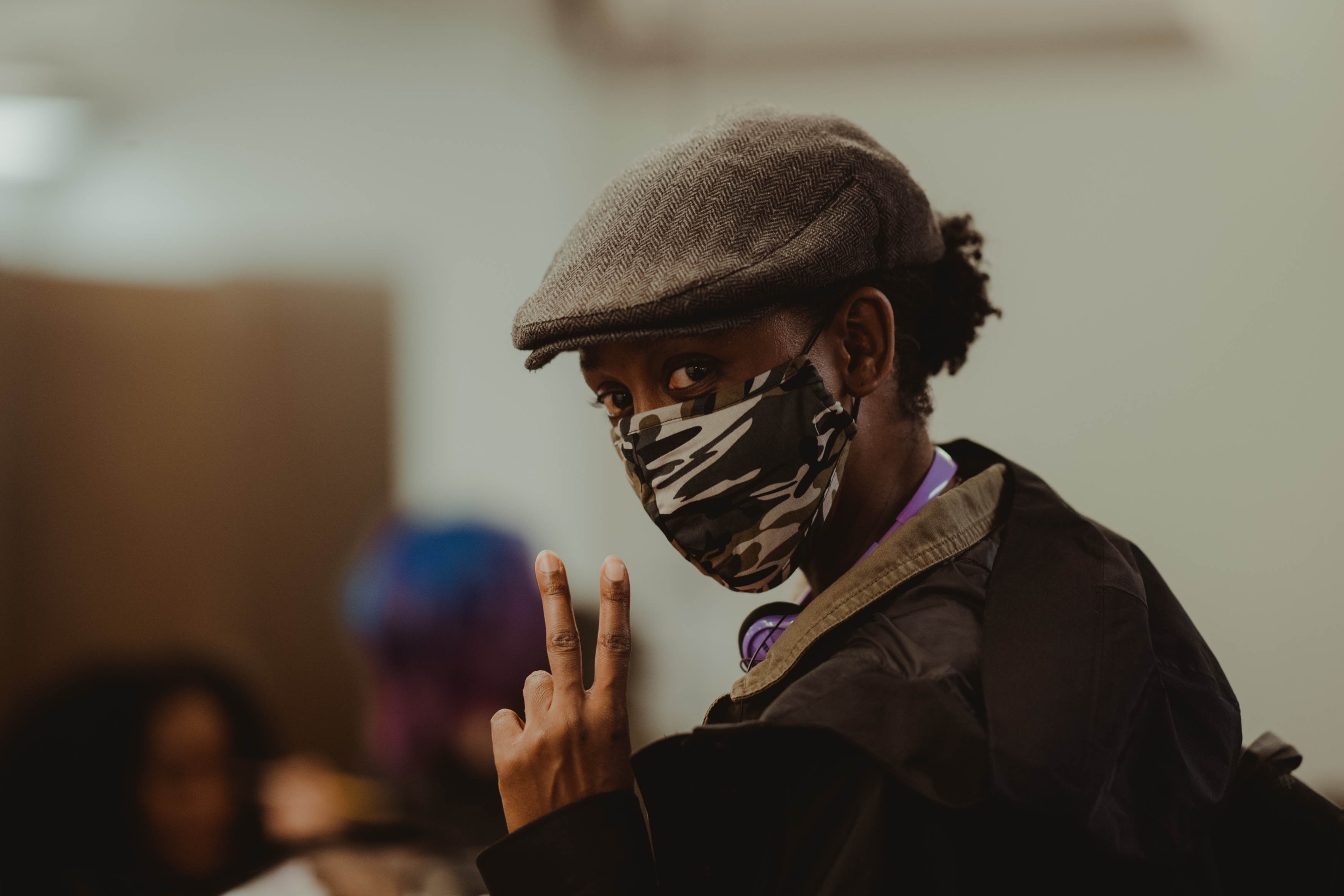Rukiya Bernard steps into the director’s chair for The Blactor

VIFF '21: The Toronto actor shares her plans to expand into producing, writing and directing, including a feature film based around the concept of harmful screen stereotypes.
Toronto actor Rukiya Bernard has made the leap behind the screen for The Blactor, a short film currently screening at the Vancouver International Film Festival.
The plot of the short, which was written, directed and produced by Bernard, is a tense confrontation between a young Black actor (Keeya King) and a nearby cop (Mark Hildreth) who mistakes her for a gangster as she’s leaving an audition.
“I do believe that what we watch on our screen is how we determine our values – it just oozes into us through osmosis and somehow we start determining certain types of people to be a certain way in real life,” Bernard tells Playback Daily.
The Blactor is currently screening online at VIFF until Oct. 11, with theatrical screenings on Oct. 9 and 10. It’s also screening at the Edmonton International Film Festival between Oct. 4 and 31, with a theatrical screening on Oct. 9, and is headed to the Dublin International Short Film Festival later this month.
Teana-Marie Smith is a producer and cast member on the short with Ryan Curtis serving as executive producer.
The short was filmed over two days in Vancouver on a $10,000 budget, which was largely raised through a crowdfunding campaign on Indiegogo. The producers initially hoped to raise $5,000 through crowdfunding and put up the rest themselves, but they ended up raising $9,900, using the rest toward a major festival and publicity push.
The project gained attention early on when Bernard wrote a piece called “Dear Becky” for YVR Screen Scene from the perspective of the “Black best friend” in romantic comedies. It’s a role Bernard is intimately familiar with, having appeared in a number of Hallmark films over the years, before headlining her own in 2020 with Christmas in Evergreen: Bells are Ringing.
The short was initially part of the first act of a feature script Bernard wrote as part of a screenwriting course. She’s since developed the feature script further and is using The Blactor as a proof of concept on the festival circuit to find potential partners to bring it to life.
The Blactor was also a valuable lesson on producing and directing, including sourcing the cast and crew. Bernard says she was able to use the momentum from “Dear Becky” to build out the crew. The team put out a notice on Instagram and quickly put together a crew that was 70% Black, Indigenous and people of colour. “It was important on a film like this, where my lead is asked to do a very heart-wrenching performance, to feel a sense of support.”
Bernard previously knew King from the series Van Helsing, which they both starred in, and knew she had the chops to play the role. The two roles most difficult to cast were the police officer and the character of Aunt Max.
The production team had been struggling to find someone willing to play a racist on screen when she recruited her friend Hildreth. “He was willing to play the ugly character, which I’m forever grateful for because it’s not him at all,” she says. “I think because of that he was able to offer a lot of intelligence to the script.”
The character of Aunt Max was initially based on a real-life Nigerian woman who owns a Black hair salon in Vancouver. When it came time to cast the role, they couldn’t find a West African woman available to play her, even after reaching out to local casting directors. In the end, they rewrote the role for a Jamaican woman and had Smith step in at the last moment. Bernard says it was an important character to include because women like Aunt Max, who are so common in communities in Toronto, Vancouver or Edmonton, are rarely seen on screen.
Looking ahead, Bernard is preparing her next short film, which tackles the issue of abortion and has a budget of $20,000 with the support of the Harold Greenberg Fund and Creative BC.
Bernard says her goal is to bring the perspectives of Black Canadians and Canadian immigrants to the screen. She has optioned the 1973 Truman Green novel A Credit to Your Race, which is set in Surrey, B.C., in 1960 and tells the story of the racism directed at a young interracial couple. “It’s an incredible story and a piece of Black Vancouver history that I’d like to usher onto the screen.”

 The definitive CDN broadcast and production resource.
The definitive CDN broadcast and production resource.










